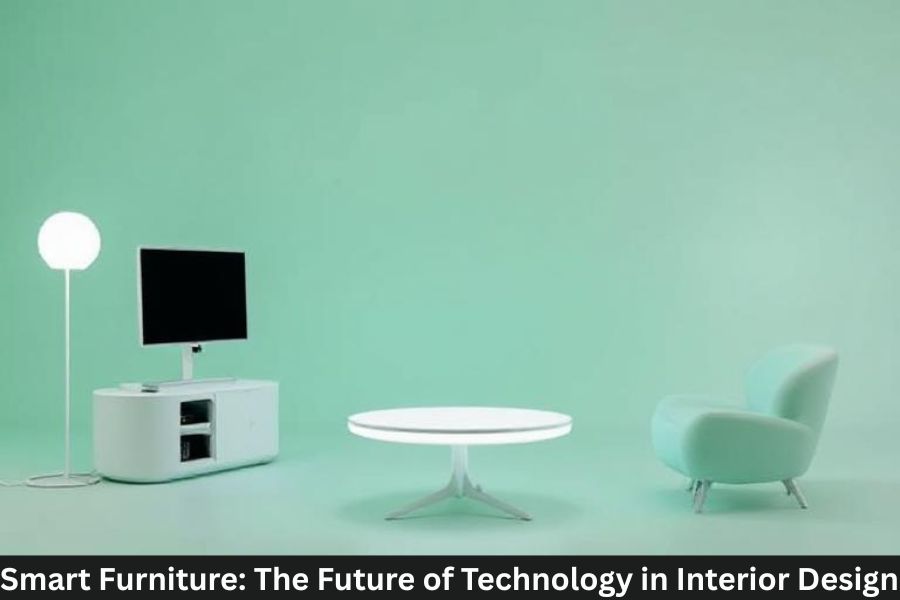
Technology is shaping every corner of our lives, and the world of interior design is no exception. From AI-powered appliances to IoT-enabled lighting, the modern home is getting smarter by the day. But there’s one innovation that’s stealing the spotlight—smart furniture. It’s stylish, intelligent, multifunctional, and undeniably futuristic.
The Rise of Smart Homes
Smart homes used to feel like something out of a sci-fi movie, but today, they’re becoming the new normal. Everything—from security systems to thermostats—can be controlled with a tap on your phone.
Why Smart Furniture Is the Next Big Thing
Furniture is no longer just about aesthetics or comfort. It’s becoming an interactive part of our lifestyle—helping us sleep better, work more efficiently, and live more sustainably.
What Is Smart Furniture?
Definition and Core Concept
Smart furniture refers to everyday furniture enhanced with modern technologies such as sensors, automation, and connectivity to improve functionality.
How It Differs from Conventional Furniture
Unlike traditional furniture, smart furniture:
- Thinks
- Responds
- Adapts
- And sometimes even learns from your behavior
It’s like having a personal assistant disguised as a sofa or desk.
Key Features of Smart Furniture
Automation
Automatic height adjustment, lighting control, or motion-based activation.
Connectivity
Most smart furniture syncs seamlessly with Wi-Fi, Bluetooth, or smart home systems.
Energy Efficiency
Smart furniture often includes power-saving features or renewable energy components.
Multifunctionality
One item can serve multiple purposes—like a table that charges your phone and plays music.
Popular Types of Smart Furniture
Smart Beds
These beds track your sleep, adjust firmness, warm your feet in winter, and even wake you gently with vibration.
Intelligent Desks
Perfect for students and professionals—these desks remind you to stand, track posture, and adjust height automatically.
Smart Lighting Furniture
Shelves, mirrors, and tables with built-in LED controls.
AI-Integrated Sofas
These sofas can adjust cushion settings or recommend seating positions.
Multifunctional Storage Units
They open with a voice command, rotate shelves automatically, or organize items on their own.
Technology Behind Smart Furniture
Internet of Things (IoT)
Allows devices to communicate with each other.
Artificial Intelligence (AI)
Learns user habits to create personalized experiences.
Sensors and Motion Detection
Trigger actions like opening drawers or adjusting lighting.
Wireless Charging Systems
Embedded charging pads keep devices powered without cables.
How Smart Furniture Enhances Modern Living
Comfort and Convenience
Imagine a recliner that adjusts itself when you sit or a bed that cools your mattress on hot nights.
Space Saving
Foldable smart furniture is a blessing for small homes.
Better Health and Ergonomics
Posture-correcting chairs and standing desks protect your spine.
Improved Productivity
Smart workstations boost focus and reduce distractions.
Smart Furniture in Interior Design Trends
Minimalistic Smart Homes
Fewer items, more functions—perfect for simple and elegant spaces.
Tech-Infused Luxury Spaces
Premium homes now integrate smart fireplaces, beds, and lighting systems.
Eco-Friendly and Sustainable Designs
Smart materials reduce waste and energy consumption.
Smart Furniture for Different Rooms
Living Room
Smart sofas, wireless charging coffee tables, voice-controlled lights.
Bedroom
Sleep-monitoring beds, smart wardrobes, automated curtains.
Kitchen & Dining
Smart stools, sensor-based cabinets, extendable dining tables.
Home Office
AI desks, smart chairs, assistive lighting.
Kids’ Room
Safety-focused smart toys, robotic storage systems, interactive study desks.
Benefits of Investing in Smart Furniture
Long-Term Cost Efficiency
Less energy usage means more savings.
Enhanced Safety
Many smart products include fire, gas, or motion alerts.
Personalized Living Experience
Your furniture adapts to your lifestyle—not the other way around.
Challenges and Limitations
High Cost
Smart furniture can be pricey due to advanced technology.
Maintenance & Repairs
Tech-based items require specialized support.
Privacy Concerns
Devices tracking usage may raise data security issues.
The Future of Smart Furniture
AI Personal Assistants Integrated into Furniture
Imagine a sofa that talks to you, plays your favorite music, or controls your home devices.
Smart Materials & Shape-Shifting Designs
Tables that reshape themselves or chairs that adjust firmness based on mood.
Fully Automated Smart Homes
Homes that operate with minimal human input.
Tips for Choosing the Right Smart Furniture
Budget Planning
Prioritize essential items first.
Compatibility with Home Systems
Ensure the product syncs with Alexa, Google Home, or Apple systems.
Prioritizing Your Needs
Don’t buy a smart bed if what you really need is a smart desk.
Real-Life Examples & Inspirations
Compact Apartments
Folding smart beds and wall-mounted desks.
Luxury Homes
AI lounges, heated chairs, voice-controlled lighting pathways.
Tech-Savvy Workspaces
Smart meeting tables, ergonomic chairs, collaborative desks.
Conclusion
Smart furniture is redefining what it means to live comfortably, efficiently, and stylishly. As technology evolves, our homes will continue to transform—giving us spaces that respond, adapt, and elevate our everyday living. Whether you’re redesigning your home or simply upgrading a few pieces, smart furniture is an investment in the future.
FAQs
1. Is smart furniture worth the investment?
Yes, especially if you value convenience, energy efficiency, and long-term savings.
2. Can smart furniture be used in small spaces?
Absolutely! Many designs are specially tailored for compact homes.
3. Does smart furniture require constant maintenance?
Not constantly, but occasional software updates or servicing may be needed.
4. Is smart furniture safe?
Yes, most products follow strict safety standards and even improve home safety.
5. Can smart furniture work without internet?
Some features may work offline, but full functionality usually requires connectivity
